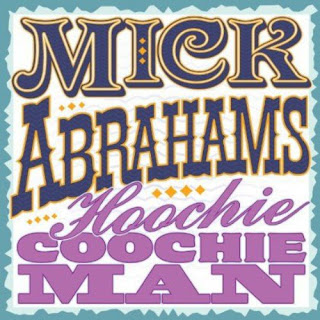After a couple months of intense and difficult recording, the guitarist deemed the final mixing process to be “too complicated” when it obviously wasn’t getting anywhere, and he put the entire album on the shelf, subsequently breaking up his band of five years in the process. In early 2011, Gallagher’s nephew Daniel, son of Rory’s brother and manager Donal Gallagher, rescued these unreleased recordings from the archives after 34 years and remixed the album that would have been released between 1976’s Calling Card and 1978’s Photo-Finish. Recorded with a four-piece band, the album’s nine songs are Gallagher originals, around half of which would be re-recorded in different form with a three-piece band for Photo-Finish.
Rory Gallagher’s Notes From San Francisco
The question on everybody’s mind, of course, is Notes From San Francisco worth the wait? Yes, I’d have to say that it was. While Gallagher may have had an inordinate amount of trouble trying to get the performances to sound like he wanted during the mixing process, Daniel Gallagher’s nuanced mix – performed with modern equipment, of course – brings out facets of the guitarist and band’s performances that the primitive late-1970s technology overlooked. The album-opening “Rue the Day,” for instance, offers up some tasty honky-tonk piano running like a river beneath Gallagher’s twangy leads and roaring vocals. Martin Fiero’s blasts of sax help round out the sound, which is revved-up boogie-rock evoking 1970s-era Rolling Stones.
Only hardcore fans of Gallagher’s bootleg albums have heard “B Girl,” but for everybody else, it’s a new song, and a good ‘un at that. With a sleazy guitar riff circling in and out of the mix, the band lays down a fat, funky rhythm that dances beneath Gallagher’s comparatively gruff, whiskey-soaked vocals. It’s this contrast, between the guitarist’s dark-hued vocals and the band’s bright instrumentation that makes the song truly shine. A long-time live favorite, “Mississippi Sheiks” would be re-recorded by Gallagher for Photo-Finish, but it’s performed here with a different arrangement. Gallagher’s stunning guitar intro and the band’s stammering rhythms are akin to the sort of blues-derived hard rock pursued by Savoy Brown or Status Quo. But what sets this performance apart from all the others is the addition of Joe O’Donnell’s lively electric violin, which provides the song with an otherworldly, soulful vibe.
Wheels Within Wheels
One of the lesser-known Photo-Finish tracks, “Fuel To the Fire” represents another outlier in Gallagher’s musical evolution. With sparse, but strong instrumentation behind his mournful vocals, Gallagher’s atypical fretwork finds him pursuing a less bluesy, more rock ‘n’ roll oriented sound with jazzy undertones and some odd, invigorating phrasing and extended solos that are simply beautiful. The album also includes two “bonus tracks,” including the previously-unreleased or re-recorded “Out On the Tiles,” a wildcat rocker with locomotive rhythms and a scattergun approach, Gallagher’s guitar spitting out notes with reckless abandon, razor-sharp tone accompanied by blistering speed and joyful chaos.
Live In San Francisco
A handful of tracks from the live portion of Notes From San Francisco stand out in particular from Gallagher’s previous (and frequent) live sets. One is a performance of “Bullfrog Blues,” from the guitarist’s early British blues-rock band Taste. Revving up the tempo, Gallagher and band crank out an unabashed boogie blast with machinegun drumbeats and flamethrower guitar licks. The concert rarity “I’m Leavin’“ is another up-tempo raver with brokeback drums, rapidfire vocals, and raging fretwork all delivered with punkish intensity, while a cover of the 1950s rock ‘n’ roll gem “Sea Cruise” is amped-up and ramped-up from the original but manages to capture the restless, rockin’ soul of the song nonetheless.
The Reverend’s Bottom Line
Although collections such as Notes From San Francisco are typically aimed at a collector audience that eagerly grab up everything new or novel from a musician, in this instance this two-disc set serves as an excellent introduction to an underrated and too-often overlooked blues-rock talent. Gallagher’s guitar rages like an out-of-control wildfire throughout these studio tracks, and roars like a jet fighter on a bombing run in the live setting.
While hardcore Rory Gallagher fans will eat this stuff up, Notes From San Francisco is more than a mere musical curiosity. The album stands on its own as both a studio recording and a live document, and it would have been welcome had it been released in 1978 as planned. As such, its current release represents an important and impressive addition to the guitarist’s growing legacy. (Eagle Records, released May 17th, 2011)
Buy the album from Amazon: Rory Gallagher’s Notes From San Francisco









